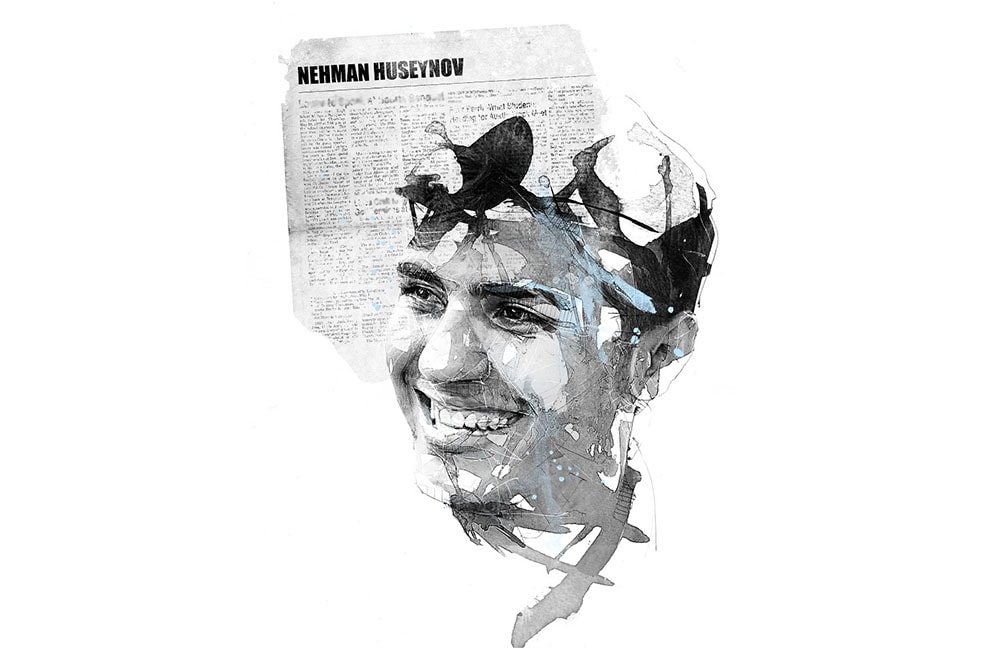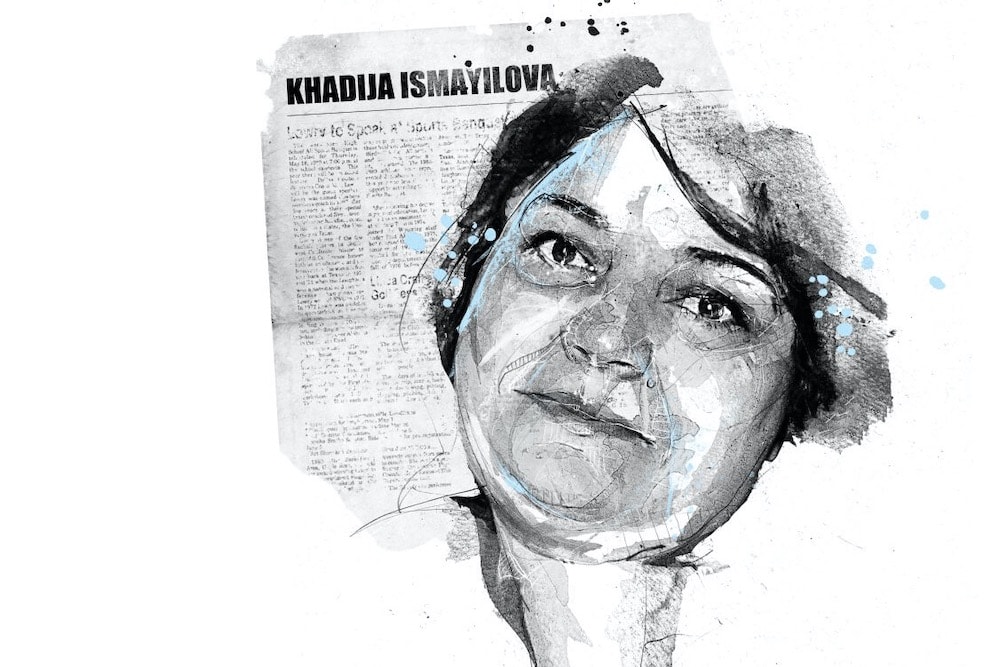Abducted, tortured and sent to jail on trumped up slander charges, Mehman Huseynov's ordeal is emblematic of how Azerbaijan treats its dissident voices.
"Whatever has been ordered from above [by the government] will happen. I have not committed any crime: this is directly aimed at stifling freedom of speech."
Mehman Huseynov, 25, is a blogger who focuses on exposing political corruption; he is also an IFEX member and chairman of the Azerbaijani press freedom group Institute for Reporters’ Freedom and Safety (IRFS). Huseynov was convicted in March 2017 on trumped up charges of slandering an entire police station and was sentenced to two years in jail. Prior to his imprisonment, the young blogger had suffered a string of injustices at the hands of Azerbaijan’s security services. The events that led to his jailing began in early 2017.
On the evening of 9 January 2017, Huseynov was grabbed and forced into a waiting car by unidentified men in Central Baku. The vehicle was driven away and Huseynov’s whereabouts remained unknown until the following day. While he was held incommunicado, the blogger’s family and colleagues – concerned for his welfare – repeatedly contacted the police for help, but to no avail.
The revelation, when it came, that Huseynov had actually been abducted by unidentified police agents (not an unknown experience to Azerbaijan’s small community of dissident voices), was not the most disturbing one. Months later, at his slander trial in March 2017, the blogger would describe in shocking detail what had happened to him that evening:
“After driving around the city for a while [with a bag over my head], they brought me to one place but did not take the bag off… Both along the way and in the place where I was taken to, they held my head down, with the bag over my head and my mouth covered. At the Department, one of them lay on top of me, tormenting me even more. They filmed me in an insulting manner and laughed. Afterwards, they took the bag off my head. I recognised two of those who were in the room. I knew that they were working for the 22nd police station of Nasimi District Police Department because one of them had previously participated in the arrest of my brother Emin Huseynov. They openly told me that I was detained because of my [journalistic] activity. I fainted at the police station. I have a venous thrombus (blood clot) in my leg, and none of the hospitals would admit me for surgery because I have not had any documents for a long time… They called an ambulance. Then, they took me to another room and began to insult me. They even slapped me a couple of times. Doctors came and gave me an injection of some unknown drug. In that unconscious state, they had me sign some documents. Even the doctors at the first aid station asked the policemen: ‘Why have you done this to a regular citizen?”
On 10 January, the day after his abduction, Huseynov was taken to Nasimi District Court. He was quickly – and ludicrously – tried on charges of resisting arrest (Article 535.1 of the Administrative Offences Code). Though he faced a potential sentence of up to 30 days in jail, the Court ordered him to pay a fine of 200 AZN (approx. 100 EUR) and released him. At the trial, his lawyer called on the district prosecutor to open an investigation into the ill treatment that his client had suffered.
Huseynov’s relief at being freed did not last long. In February 2017, in an act of intimidation (motivated both by Huseynov’s brave decision to publicly speak out about the violence he had suffered while detained) Azerbaijan’s Ministry of Internal Affairs (MIA) filed a private prosecution suit against him, asking for Huseynov to be prosecuted under Articles 147 (slander) and 148 (insult) of the Criminal Code.
The resulting trial on 3 March 2017 was brief and riddled with irregularities which denied the defence adequate time to prepare. Huseynov knew that justice would not be served and, addressing the court, declared: “Whatever has been ordered from above [by the government] will happen. I have not committed any crime. The trial was not conducted in a normal way, which is proof of an order [from above]. This is directly aimed at stifling freedom of speech.”
Following two minutes of deliberation, the judge found Huseynov guilty of the charges against him and sentenced him to two years in prison; he was led away in handcuffs.
There was global outrage at the news of Huseynov’s conviction. In the days following the trial, the OSCE Representative on Freedom of the Media condemned the sentencing and called for Huseynov’s release; the European Union External Action Service said that the conviction raised “serious questions both as regards respect for freedom of expression and due process of law” and called for an investigation into Huseynov’s reports of ill treatment by the police; and a series of coordinated protests were staged in Germany, Sweden and France calling for the blogger to be freed.
At an appeal hearing in April 2017, a Baku court upheld Huseynov’s conviction. In September 2017, the Supreme Court of Azerbaijan found the appellate court had not adequately addressed the petitions of the defense, and returned the case for a second hearing to the Baku Court of Appeal. In December 2017, this appeal was dismissed.
Whilst in jail, Huseynov was denied temporary, compassionate release to visit his terminally-ill mother; she died in August 2018.
On 27 December 2018, IRFS reported that Huseynov had been charged with assaulting a prison employee: if convicted, he faced a further seven years in jail. Huseynov denied the charge and began a hunger strike in protest. Other political prisoners soon joined him in an act of solidarity. Huseynov’s hunger strike drew national and international attention: there were huge street demonstrations in Azerbaijan calling for his release (and for the release of all political prisoners); there were also protests from IFEX members and European institutions. On 22 January 2019, Azerbaijan dropped the assault charge against Huseynov.
Human rights organisations, including IFEX and many of its members, continued to campaign for Huseynov’s release and for his conviction to be quashed.
On 2 March 2019, Huseynov was released from prison, having served his full sentence. On leaving prison he went straight to the cemetery to attend an event commemorating Elmar Huseynov, an independent journalist who was murdered in 1995 and whose killers continue to enjoy impunity.
On 27 December 2019, Huseynov was detained by police overnight in Baku, beaten up, and later released in the outskirts of the city. He had recently stood, unsuccessfully, as a candidate in December’s municipal elections and had been protesting the detention of a well-known rapper, Paster, before he was arrested.
Illustration by Florian Nicolle


